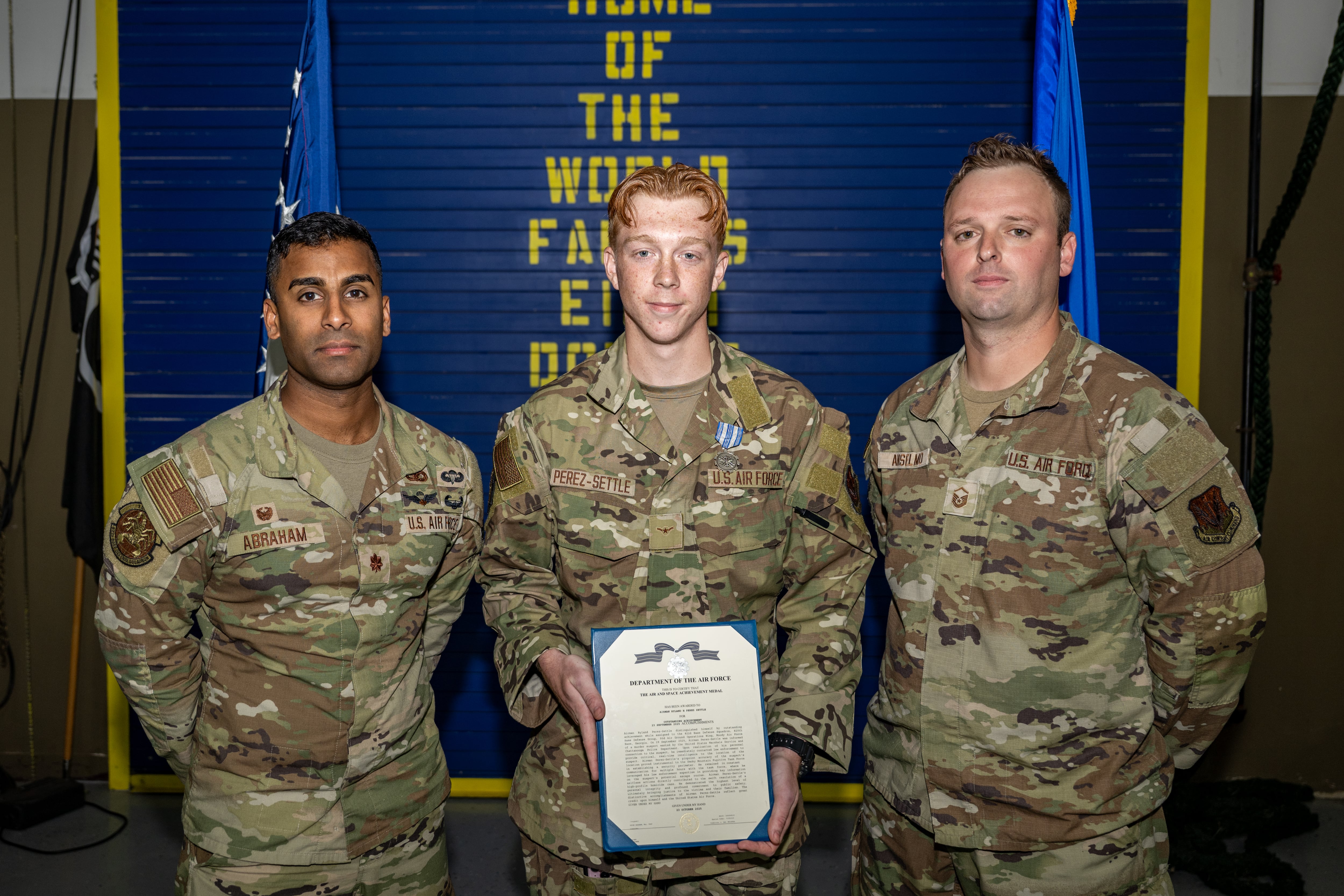DENVER — Both of the U.S. military's high-drama, high-dollar flying teams suffered crashes on the same day this week, but supporters say the Air Force Thunderbirds and the Navy Blue Angels are worth the money and the risk because they're vital to recruitment and help citizens feel good about their military.
"It's our No. 1 recruiting tool," said retired Air Force Col. Pete McCaffrey, a pilot with the Thunderbirds from 1992 to 1995.
Most people don't get to see the military up close, but when they see the elite air squadrons perform, "it gives them a sense of pride in their military and their country, and I think now we need that more than ever," McCaffrey said Friday.
A Blue Angels F/A-18 crashed Thursday near Nashville, Tennessee, while taking off for a practice session ahead of a weekend air show. The pilot, Marine Capt. Jeff Kuss, was killed.
Also Thursday, a Thunderbirds F-16 crashed outside Colorado Springs, Colorado, but that pilot, Maj. Alex Turner, ejected safely. The Thunderbirds had just performed over the open-air graduation ceremony at the nearby Air Force Academy, where President Barack Obama spoke.
The military hasn't publicly discussed the cause of either crash. Both are under investigation.
The Blue Angels and Thunderbirds have had dozens of crashes in their long histories, and a total of at least nine pilots been killed during performances or practices since 1985.
The teams are pricey, too. The Thunderbirds have an annual operating budget of $35 million, said Air Force Staff Sgt. Katie Maricle, a spokeswoman for the Air Combat Command. A Navy spokesman couldn't immediately provide the Blue Angels' budget.
But the military insists the teams are important to the services and the nation.
"The Thunderbirds are a huge part of U.S. Air Force history and they are such a vital element of connecting our nation to our Air Force," Maricle said.
Michael Kennedy, a retired Air Force lieutenant colonel, said the Thunderbirds and Blue Angels help servicemen and women share their pride with the public.
Kennedy, who now flies in air shows, said the demonstration teams let the military say, "We're here to defend you and we just want to show you. We want to demonstrate to you so you can appreciate what we're doing for you."
Kuss himself once said the Blue Angels were his inspiration to become a pilot.
Two months ago, when the squadron arrived at the Smoky Mountain Air Show in Alcoa, Tennessee, Kuss told a reporter from WATE-TV that he remembered looking up at the Blue Angels as a little boy. He said his goal was to inspire all the kids now looking up at him.
"We're just pumped to be able to interact with the community and tell them a little bit about what we do," he said. "But we really just try to invoke that fire in their belly to go out and do what they want to do that makes them happy and successful in life."
Tom Meyvis, a professor of marketing at New York University's Stern School of Business, said the recruitment argument has merit, especially when potential servicemen and women see the teams at air shows.
"People who are interested in the Air Force are more likely to attend these events and witness these teams and be excited by them," he said. "The idea of investing in the future brand of the Air Force or the military, that is a positive investment."
But Meyvis cautioned he's not a military expert and said he couldn't evaluate whether the military's investment pays off.
"Is it worth the money? I don't know," he said.
He also questioned the value of the flying teams in building goodwill with the public.
"I don't know that the U.S. military necessarily needs to sell itself to the general population," he said.
Associated Press writer Kristin M. Hall in Nashville, Tennessee, contributed to this report.
Copyright 2016 The Associated Press. All rights reserved. This material may not be published, broadcast, rewritten or redistributed.





